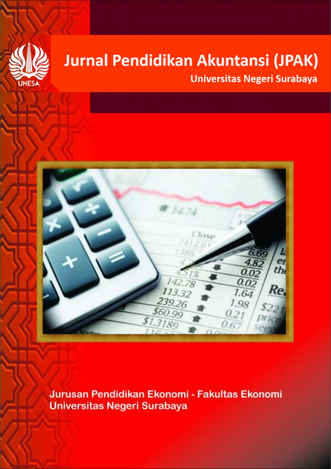Pengaruh Pengantar Akuntansi, Literasi Digital, Dan Self-Regulated Learning Terhadap Keberhasilan Pembelajaran Akuntansi Keuangan Berbasis Daring
DOI:
https://doi.org/10.26740/jpak.v9n2.p149-157Keywords:
Introduction of accounting; digital literacy; self-regulated learning; financial accounting; onlineAbstract
This research to analyze whether there is an influence between the introduction of accounting, digital literacy and self-regulated learning on the success of online-based financial accounting learning in accounting education students of class 2018. This research is quantitative by taking the data through questionnaires. Based on the results of the regression analysis, it can be seen that in the partial test (t test) the three variables, namely X1, X2 and X3, have t value greater than t table. These results conclude that the three variables have a positive effect on the success of online-based financial accounting learning or it can be said that Ho is rejected and Ha is accepted. The results of the f-test indicate that Ho is rejected and Ha which states that there is a positive influence between the introduction of accounting, digital literacy and self-regulated learning simultaneously on the success of online-based financial accounting learning. In this study, the resulting determinant coefficient is that all independent variables have an effect on the dependent.
Downloads
Downloads
Published
How to Cite
Issue
Section
License
Authors who publish with this journal agree to the following terms:
- Authors retain copyright and grant the journal right of first publication with the work simultaneously licensed under a Creative Commons Attribution License that allows others to share the work with an acknowledgement of the work's authorship and initial publication in this journal.
- Authors are able to enter into separate, additional contractual arrangements for the non-exclusive distribution of the journal's published version of the work (e.g., post it to an institutional repository or publish it in a book), with an acknowledgement of its initial publication in this journal.
- Authors are permitted and encouraged to post their work online (e.g., in institutional repositories or on their website) prior to and during the submission process, as it can lead to productive exchanges, as well as earlier and greater citation of published work (See The Effect of Open Access).

Jurnal Pendidikan Akuntansi (JPAK) is licensed under a Creative Commons Attribution-NonCommercial 4.0 International License.
 Abstract views: 1364
,
Abstract views: 1364
, PDF Downloads: 1192
PDF Downloads: 1192



